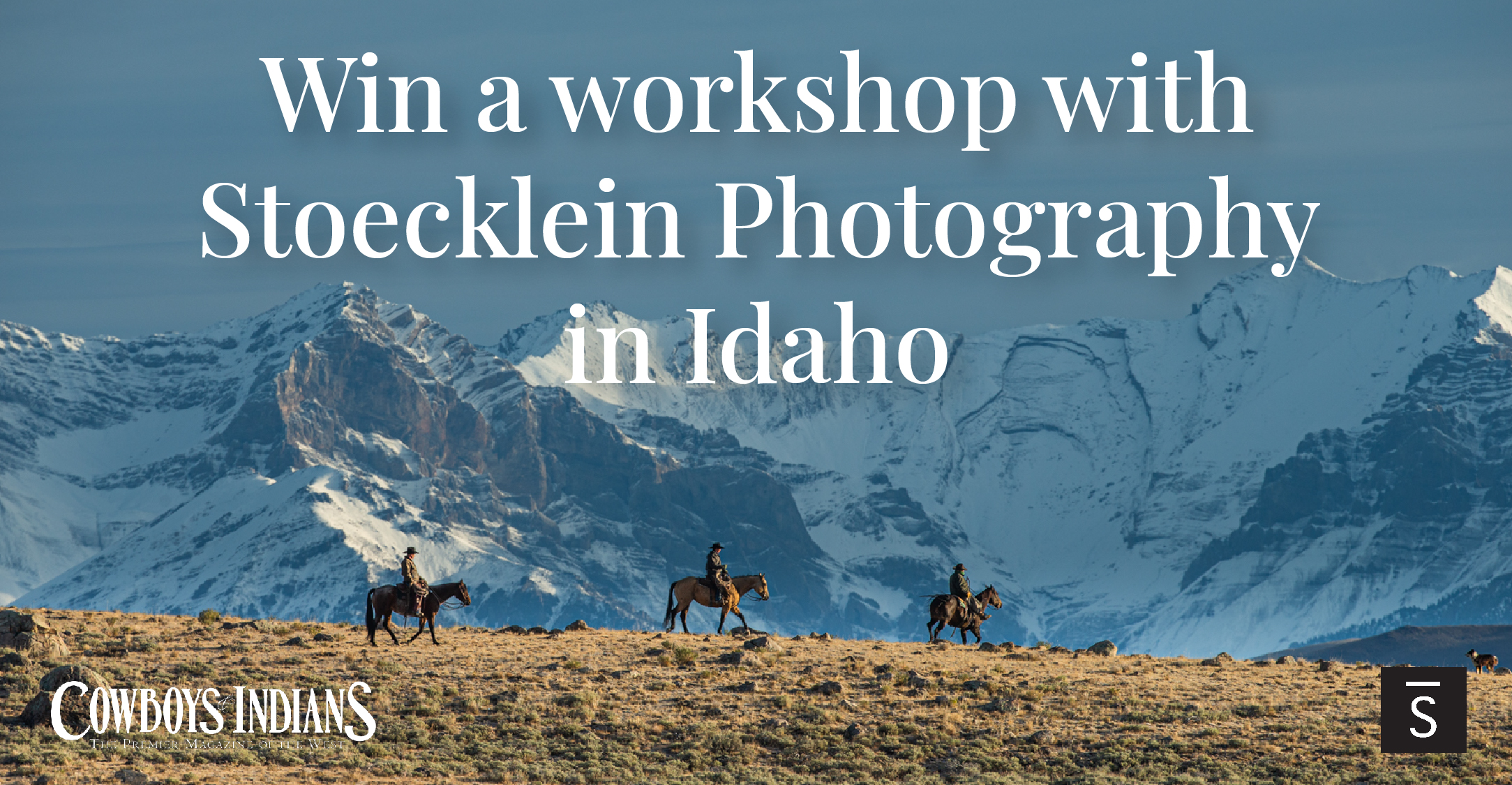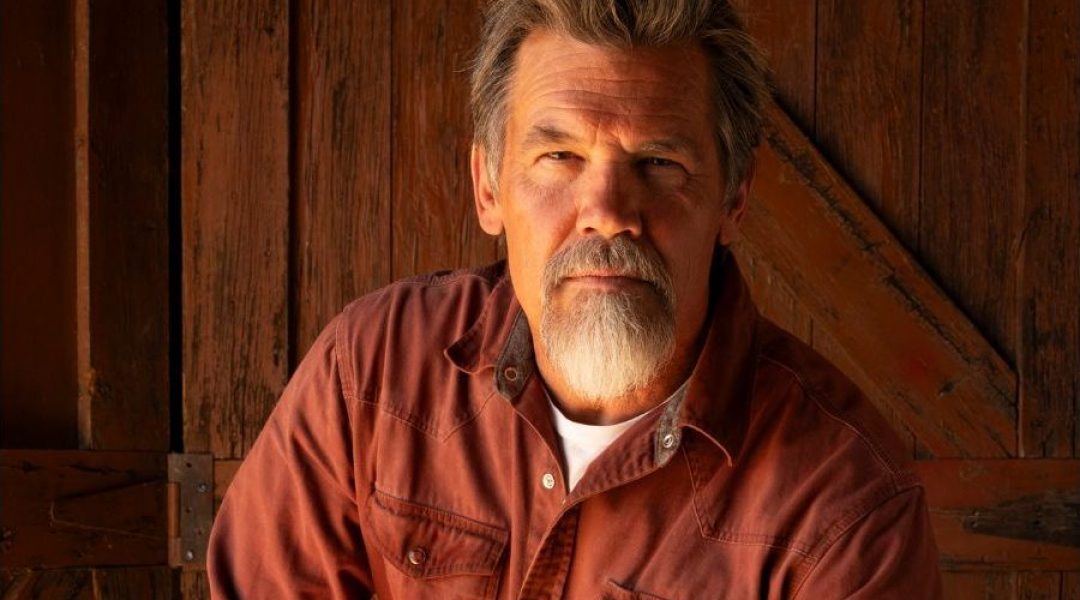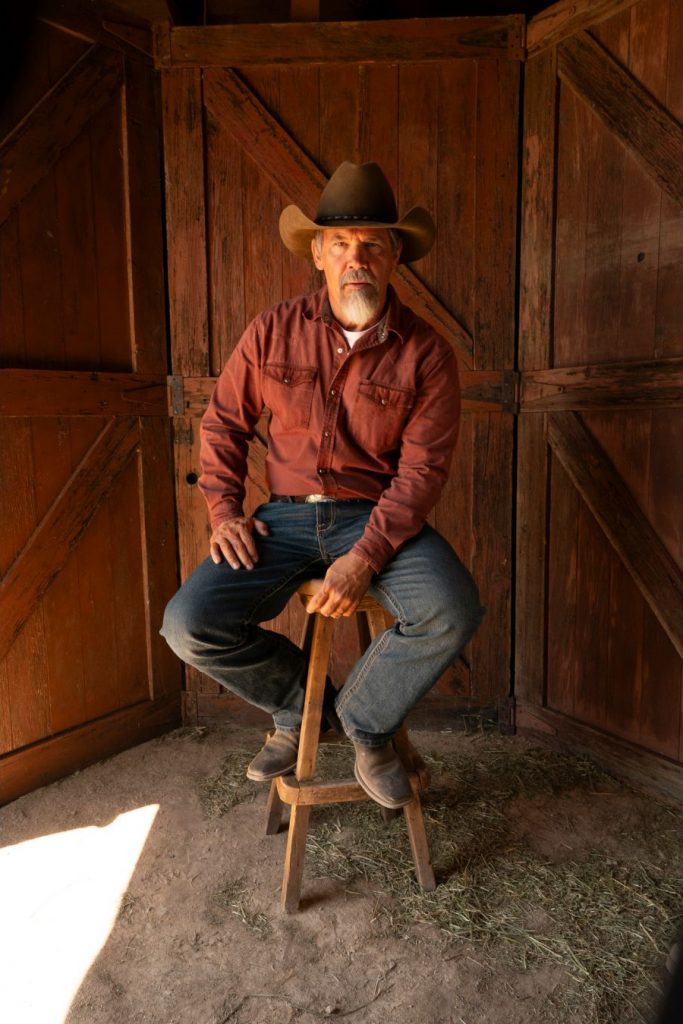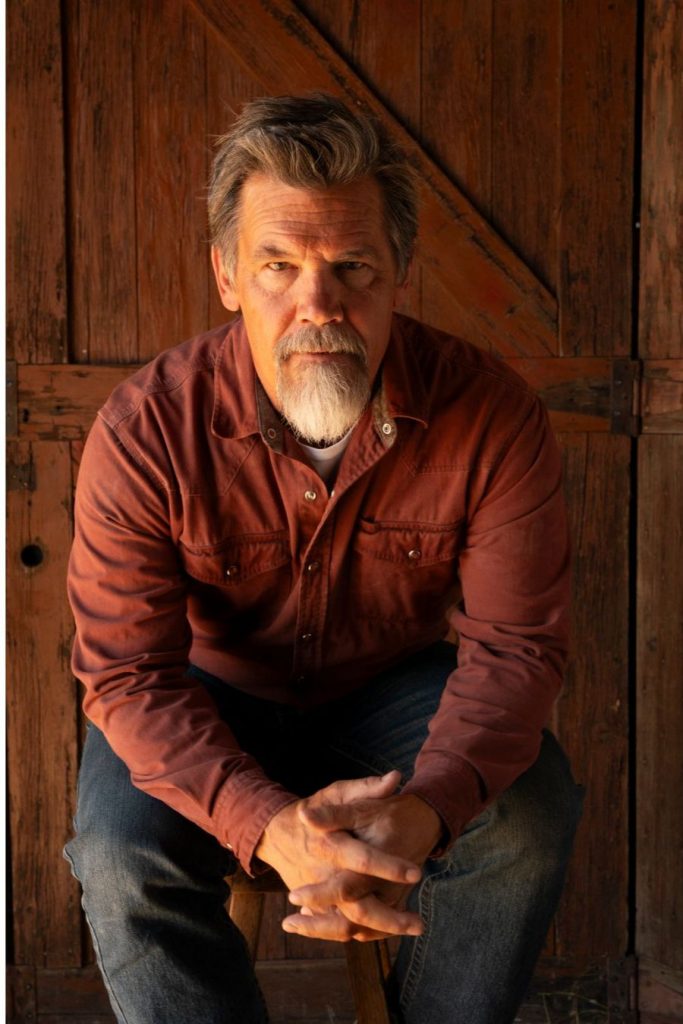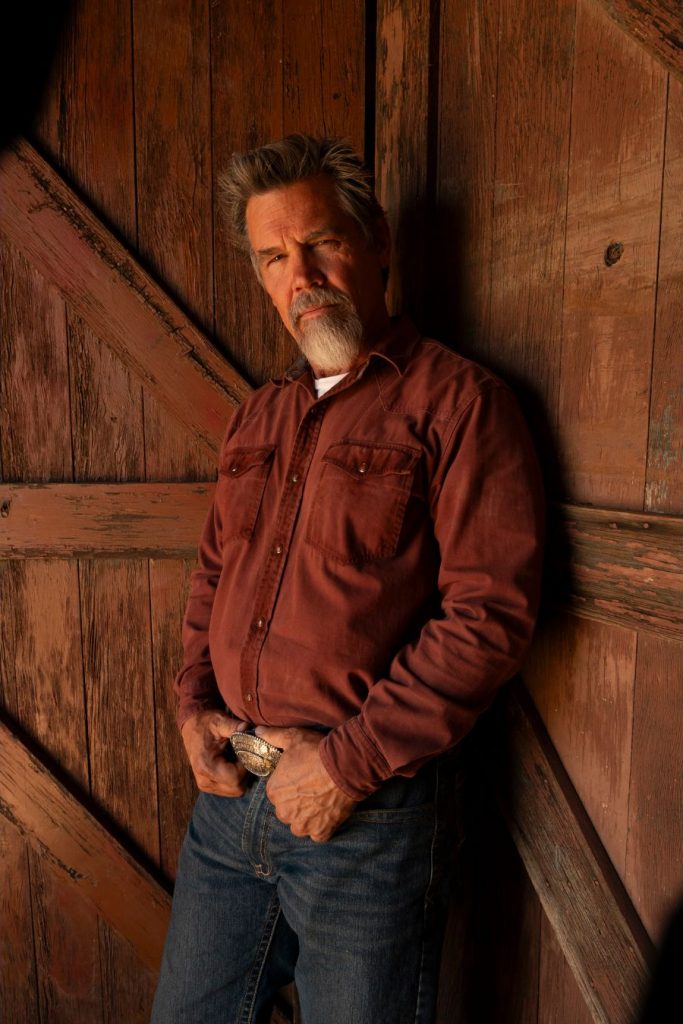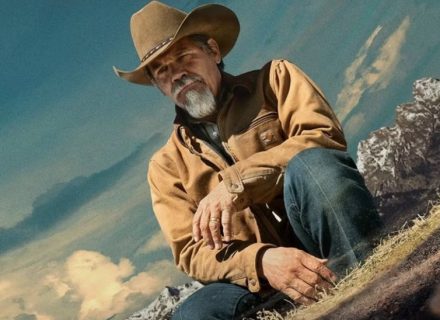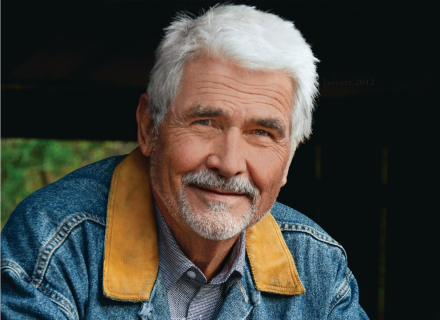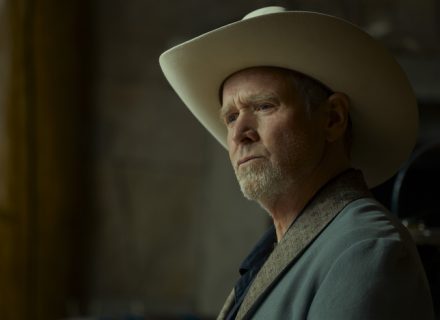As Josh Brolin returns to the big and small screens in Dune: Part Two and Season 2 of the Western series Outer Range, one thing is clear: Audiences want more of what he’s got.
Josh Brolin still remembers his initial reaction when he read the pilot script for Outer Range. It registered somewhere between “Oh, wow!” and “What the hell?”
“But ‘What the hell’ is a good thing for me,” Brolin told me shortly before the show’s Season 1 premiere. “‘What the hell’ is never a bad thing for me. It’s like, I remember my father seeing Inception. I was so jazzed up by it, and I told him about it, so then he went to the movie theater to see it for himself. And then he called me and basically said just that: ‘What the hell?’”
Pausing to chuckle, Brolin added: “Except he didn’t say ‘hell.’”
Even so, the sheer wall-to-wall weirdness of Outer Range, a series best described as Yellowstone meets Twin Peaks to hang around with Lost, was downright irresistible to Brolin. In the series, which returns for Season 2 this spring on Prime Video, he’s cast as Royal Abbott, a Wyoming rancher who already had a lot on his plate at the start of Season 1 — the disappearance of his daughter-in-law, the machinations of a wealthy neighbor with designs on his land, an inconvenient manslaughter that could implicate one of his adult sons — when a mysterious black void, hole, doorway or whatever, suddenly appeared in his west pasture. When someone pushed him into that gaping chasm, complications arose. And when he emerged, things really got strange.
Brolin thinks he was drawn to Outer Range in the first place because of the unique blend of two disparate influences that shaped him during his youth.
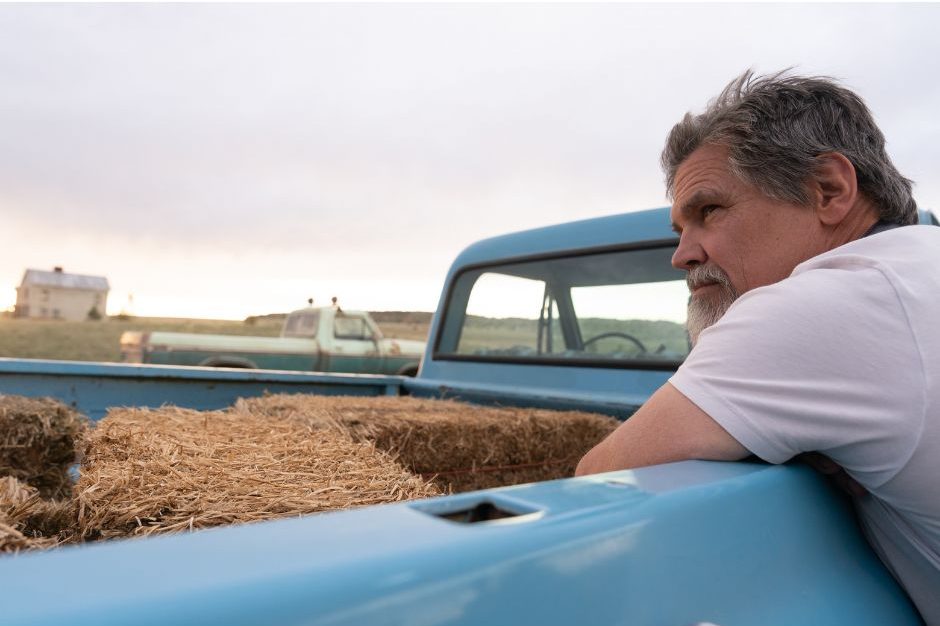 Brolin returns as Wyoming rancher Royal Abbott in Season 2 of Outer Range on May 16 on Prime Video (PHOTOGRAPHY: Courtesy Karen Kuehn/Prime Video).
Brolin returns as Wyoming rancher Royal Abbott in Season 2 of Outer Range on May 16 on Prime Video (PHOTOGRAPHY: Courtesy Karen Kuehn/Prime Video).
“One is the literature that I was turned on to as a kid while growing up on the Central Coast of California on a horse ranch, and having that reality be my reality. And then reading Ray Bradbury and Isaac Asimov was a massive psyche opener. You know what I mean? It just exploded my imagination with colors and all kinds of stuff that I just never thought possible,” he says. “It was like, what some people look for in drugs, I found in Ray Bradbury and Isaac Asimov. So I was able to live these crazy, crazy, crazy scenarios — which would taint my reality when I would come back. And it was really fun for me.”
Now Brolin is back for another heaping helping of craziness in Season 2 of Outer Range, along with a group of series regulars that includes Imogen Poots as Autumn, a mysterious drifter somehow connected to the aforementioned black hole; Lili Taylor as Cecilia Abbott, Royal’s deeply religious wife; Will Patton as Wayne Tillerson, the wealthy manipulator who covets the Abbotts’ land; and Tamara Podemski, a small-town Native American sheriff with an ever-growing caseload.
The critically acclaimed neo-Western sci-fi drama is another outstanding resume credit for Brolin, who started to follow in the footsteps of his famous father, actor James Brolin, when he made his movie debut in The Goonies, the 1985 comedy-adventure that continues to claim a fervent fan base. Since then, he has made his mark in Westerns (including the 1989 – 92 TV series The Young Riders and the 2010 True Grit remake), powerful dramas (No Country for Old Men, Only the Brave, Sicario), ambitious biopics (the 2008 double header of Milk, for which he received an Oscar nomination as Best Supporting Actor, and W., in which he played, very convincingly, President George W. Bush), and, yes, even Woody Allen comedies (Melinda and Melinda, You Will Meet a Tall Dark Stranger).
More recently, he has loomed large in the Marvel Cinematic Universe as Thanos, the super-villainous alien warlord who takes a drastic approach to population control in Avengers: Infinity War and Avengers: Endgame; and distinguished himself as the formidable Gurney Halleck, an invaluable ally and mentor for brave young Paul Atreides, in Dune and Dune: Part Two.
Right smack dab in the middle of his promotional chores for the latter blockbuster, Brolin and I managed to catch up for another chat about Outer Range.
PHOTOGRAPHY: Courtesy Karen Kuehn/Prime Video
Cowboys & Indians: When you came back to Outer Range after an extended hiatus, did you feel a little bit like one of the timetrippers in the show? Like, “OK, here I am coming back after a couple of years. And I know I’ve changed, but I guess I’ve got to act like I haven’t.”
Josh Brolin: Not really. I mean, I did the same thing with Dune. I think it was almost the exact same span of time. I mean, I did Dune and then I did Outer Range, and then I did Dune 2, and then I did the second season of Outer Range. But, yeah, it’s always strange going back into a role that you’ve already played. It’s almost like you’re doing a play. And then, after the end of the play, a year later, the play gets picked up again somewhere else, and they’ve just changed all the dialogue. It’s a very strange feeling. But I was very, very happy to go back into Outer Range. And I’m very, very happy with the outcome of Season 2.
C&I: One thing I really enjoyed about Season 2 is your increased interaction with three strong female characters. Imogen Poots’ mysterious Autumn, of course, but also Lili Taylor as your wife, and Tamara Podemski as Sheriff Joy Hawk. Could you tell me a little bit about what it was like working with those three individuals?
Brolin: It’s wonderful for me, because I admire strong women, and all those women are very strong, and I’m very close with all three of them. Actually, I grew up with one of the strongest women I’ve ever met in my life — she was crazy, but she was strong — and that was my mother. And she was from Corpus Christi, Texas. Ran away from home when she was 17 to come to California. And yeah, she was a force of nature. So when I’m confronted with strong women, I feel right at home. I know some people get a little — what’s the word? They get a little put off by it, or out of sorts. That’s quite the opposite for me. I love them. I mean, they’re each very different. Imogen Poots is kind of like on her way up. Tamara has done very well for herself in Canada and is well-known there. And then Lili’s been around forever. She and I auditioned for Fool for Love on Broadway when Ed Harris was supposed to direct it. I almost forgot that we had done that because it was so long ago, like 20 years. And I’ve always been such a fan of hers.
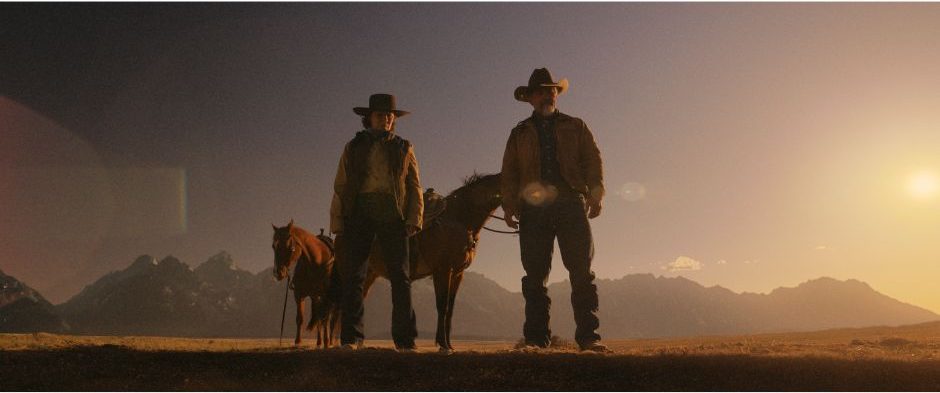 Brolin as Royal Abbott alongside Lili Taylor as his wife, Cecilia Abbott, in the second season of Outer Range on Prime Video (PHOTOGRAPHY: Courtesy Prime).
Brolin as Royal Abbott alongside Lili Taylor as his wife, Cecilia Abbott, in the second season of Outer Range on Prime Video (PHOTOGRAPHY: Courtesy Prime).
C&I: And you had the privilege of directing all three of them in an episode.
Brolin: [Laughs] Yeah, and being in a position of like, “I’m going to suggest what you should do.” That kind of thing — that wasn’t going to fly with those women, which I love. So it was a really easy but weighted collaboration with those three. I think if I ever have an issue, it’s usually with the guys. But even with the guys — like Will Patton, he was absolutely delightful to direct. I loved it.
C&I: There’s a greater emphasis on Native Americans in Season 2. I don’t want to spill any beans, but Tamara Podemski more or less has an entire episode to herself. Was that one of the things that you were pleased to go into this season that you may not have covered as much in Season 1?
Brolin: Not only pleased to go into, but helped create. I mean, my involvement with Native Americans started when I was in my very early 20s in Tucson, Arizona, when I was doing Young Riders. So there’s a lot of personal interest, self-involvement. Obviously, now that you have [Killers of the Flower Moon] and all that, there’s so much emphasis on that. But that wasn’t happening when we decided to do that show, and when we were filming. It’s like if you’re going to go back in time, or if you’re going to go through these symbolic portals or actual portals, where did they end up? That was the big difference between the first season and the second season. Where do they end up? What if we start putting them in timelines? What timeline would it be? We suggested it in Season 1, but to actually flesh it out in Season 2, it almost felt inevitable. Like, if we didn’t do it, that would’ve been almost racist.
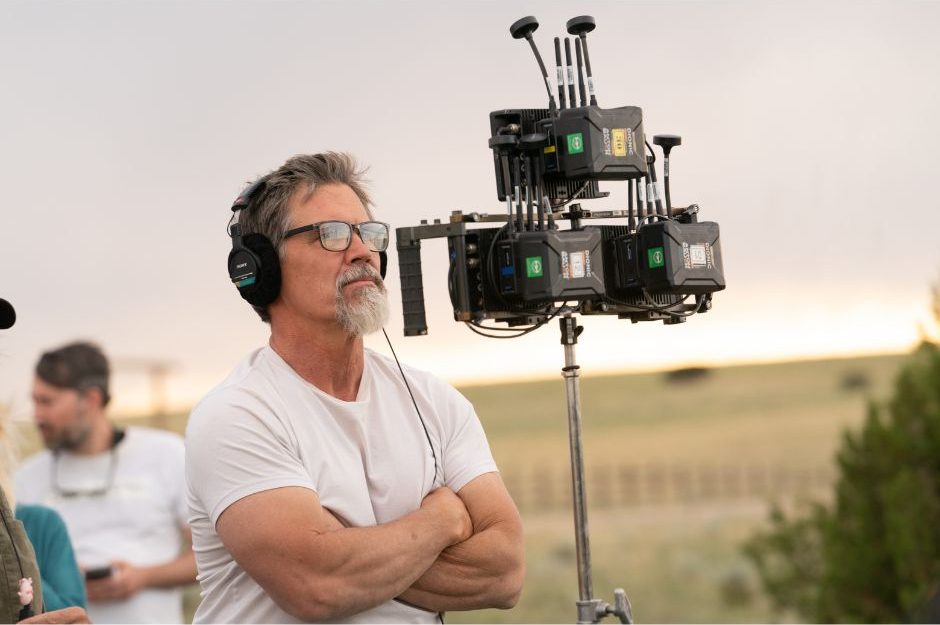 Brolin, behind the camera, directed the penultimate episode of Season 2 of Outer Range (PHOTOGRAPHY: Courtesy Karen Kuehn/Prime Video).
Brolin, behind the camera, directed the penultimate episode of Season 2 of Outer Range (PHOTOGRAPHY: Courtesy Karen Kuehn/Prime Video).
C&I: It would seem to me that, after Avengers: Endgame, the Dune movies, and now Outer Range, you’ll be invited to sign autographs at sci-fi and comic-book and plain old fanboy conventions for the rest of your life. Or has that already happened?
Brolin: It has. We’ve been offered a lot of those. And I did it — once. I gave 100 percent of those earnings to charity. And I appreciate the fans very much, and I’m not just saying that to be, like, PC. I really appreciate the fans. The amount of money that the conventions charge is a little unnerving to me. But the fact that I gave that money to charity, I feel very, very good about. That’s a scenario that I can live with. If the money were just for me, I wouldn’t do it. I honestly wouldn’t do it. I don’t need a private plane that bad.
C&I: Kirstie Alley once said she went to one convention because she was in Star Trek II: The Wrath of Khan — but she never went to another because she got freaked out by people asking questions like, “What is it like to travel at warp speed?”
Brolin: It’s tough, man. I mean, you don’t understand what it’s like when somebody comes up to take a picture with you, and they’re shaking so uncontrollably because it’s not you that they’re seeing, it’s the character that they’re seeing. You know what I mean? Somebody who’s seen the Avengers movies comes up and says, “Well, you actually got rid of half the universe — I mean, you have that power,” and they actually believe it. I mean, it’s wild, man. The mind is a strange thing.
But I’ve also experienced a lot of wonderful moments because of it. I did a movie called Only the Brave, about the 19 firefighters who perished [during the 2013 Yarnell Hill Fire in Arizona]. Well, about a year ago, I got off a plane and I saw this jacked guy. He was just in incredible shape, probably in his early 30s, tattoos all the way down to his wrists on both arms. And he had tears just pouring down his face. He said, “I’m sorry, I don’t mean to bother you, but thank you so much for making that movie. Thank you.” And that means everything to me. So, that’s the positive aspect of fandom.
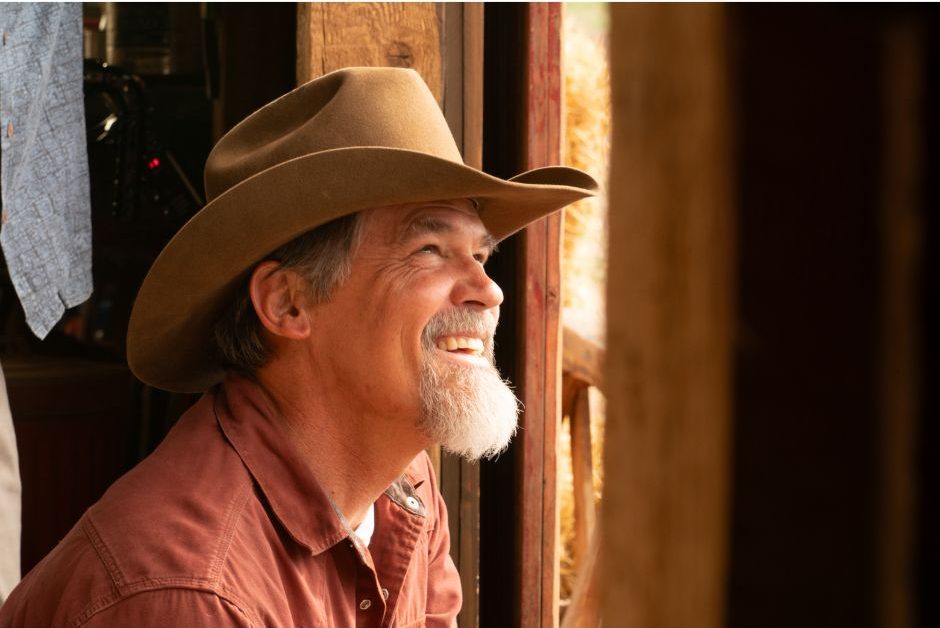 PHOTOGRAPHY: Courtesy Karen Kuehn/Prime Video
PHOTOGRAPHY: Courtesy Karen Kuehn/Prime Video
C&I: Years ago, director Arthur Penn told me that, while he would always be proud of Bonnie and Clyde, he occasionally was tempted to tell an interviewer: “But you know, I have made other movies.” Did you ever go through a period where the only thing people wanted to ask you about was The Goonies?
Brolin: It’s funny that you bring this up because — well, I almost don’t want to name the band, but I’ll put it this way. I did [Saturday Night Live] one time where I introduced the musical guest. I think it was the second time that I did it. And the musical guest said something like that publicly: “You know, we have more than one song.” And I remember I cringed a little bit because I was like, “Do you realize how lucky you are to even have one song that the masses are listening to and responding to?”
So, yeah, as much as our egos would all love to have multiple great movies, you have to remember: From an acting standpoint, the likelihood that you’re ever even going to work is like 0.0001 percent. And the likelihood that you’re going to be in a great movie is pretty much nil. So I feel super, super fortunate looking back. And if I ever had a moment of complaint about only having The Goonies, I was a schmo, because that was one of the greatest experiences of my life. I’m lucky to have more.
C&I: Once again, I have to be careful about spoilers. But let me put it like this: I can see people viewing the final episode of Season 2 of Outer Range as a satisfying wrap-up. But I also see there are enough things still going on so that a Season 3 wouldn’t feel forced. In fact, it would feel welcome. How do you feel?
Brolin: I feel exactly like that. I think by the time you finish a series, if I’m super honest with you, you’re ready to go home. You’re tired, you’re in a different work mode. Like, I’m in press mode [for Dune: Part Two] right now. I just did a world tour. I was just in Abu Dhabi, I was in Paris, I was in London, I was in Mexico. I’ve been all over the place, and it’s just a different mentality. You’re getting three hours sleep a night, you have jet lag, and you’re having to work all day and do 500 interviews. It’s a different state of mind that you put yourself in, in order to just keep moving forward.
And I think the same thing goes with [Outer Range]. It was a very, very tough series. The strike started to happen at the end of the series. It was extremely cold. We were out in the elements most days. But you’re not thinking about that, you’re just doing what needs to be done. But now, in hindsight, when you start to look back at all that stuff, it’s almost like — well, I wouldn’t know, but from what I’ve been told, it’s like birth for a woman. You look back and you’re like, “That’s it. No more babies. No more.” And then, nine months later, or a year and a half later, you’re like, “Hey, what do you think about having another kid?” And that’s kind of how it feels.
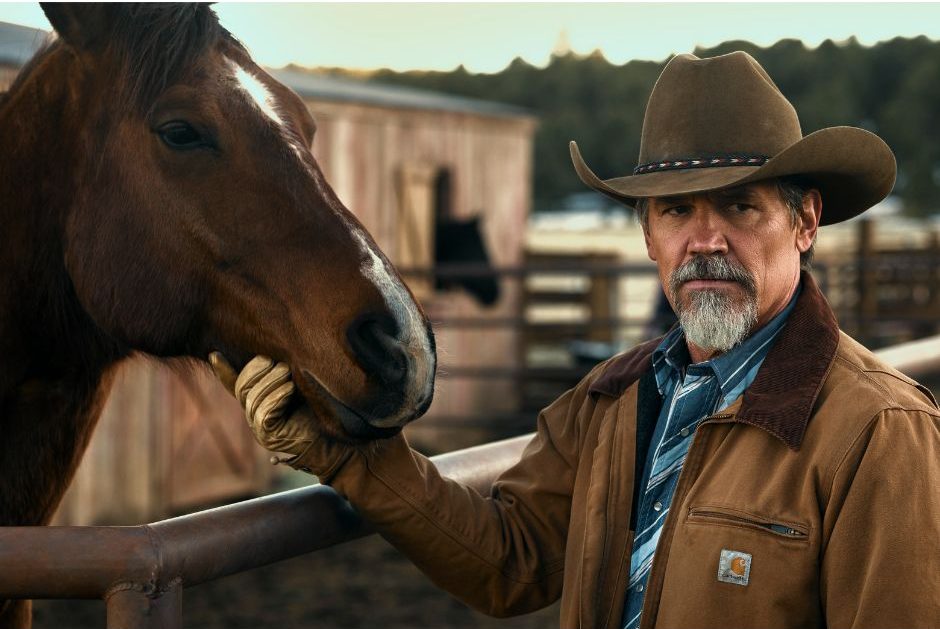 Josh Brolin as Royal Abbott in Season 1 of Outer Range (PHOTOGRAPHY: Courtesy Richard Foreman/Prime Video).
Josh Brolin as Royal Abbott in Season 1 of Outer Range (PHOTOGRAPHY: Courtesy Richard Foreman/Prime Video).
C&I: So you wouldn’t mind getting pregnant with Outer Range again?
Brolin: [Laughs] I think within six months, I was looking back and I was like, “This is a series that I can continue to feel confident about, and want to put that amount of work in, because I like the people ... ” No, I don’t like, I love the people involved. Imogen Poots, Lili Taylor, Will Patton, Lewis Pullman — and Shaun Sipos [as Luke Tillerson], who I thought was good in the first season, but he was like a little bit of a pretty boy. And then, we gave him a lot of work in the second season, and I thought he did incredible work. I mean, he really showed up — especially when he was working with Will Patton, who’s not going to give you any slack. I mean, talk about a guy who’s 1,000 percent in the character, and a guy who lives off whim and instinct. As an actor, I love it. But as a new actor, I’m sure it’s terrifying. You don’t know if he’s going to punch you in the chest, or act like a bird, or take off his clothes. You have no idea.
And what’s great about Outer Range is the show allows for it. The show is set up like that, where anything can happen. It’s really exciting to me talking about it, because I’ve been going around talking about Dune: Part Two, which is also exciting because it’s set up the same way. It’s like, as long as people see it, a third one is inevitable. And I think the same goes for Outer Range. I don’t have to do a third season. I’m not contractually obligated to do a third season. But a third season would happen because people want to see a third season. And I would happily make that come true — if the people want it.
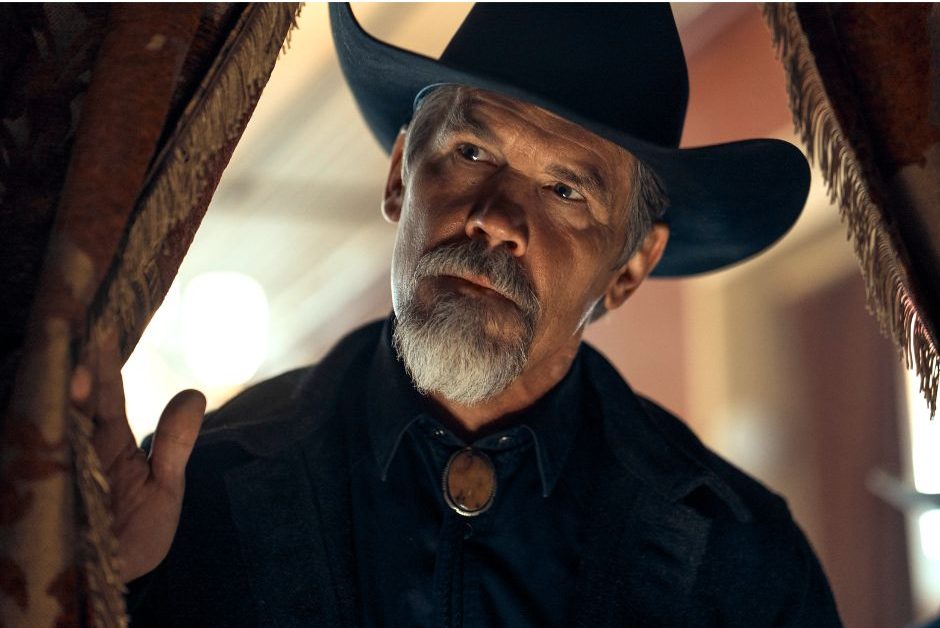 Brolin in Season 2 of Outer Range (PHOTOGRAPHY: Courtesy Richard Foreman/Prime Video).
Brolin in Season 2 of Outer Range (PHOTOGRAPHY: Courtesy Richard Foreman/Prime Video).
C&I: I’m still waiting for the feature-length version of X, that short you wrote and directed, and premiered at the SXSW Film Festival back in 2008. Back when I was teaching film courses in Houston, I would use it as a teaching tool in my screenwriting class.
Brolin: Oh, that's amazing, man. I remember that. I remember you talking about that. I loved that story X. I mean, I could have done that short better, but I do like the way it was written. I thought it was tightly and well-written. But you know, it’s funny: I think after No Country, I was so inspired and so ready to direct, and I just got waylaid by great directors. I mean, I kept getting offered movies with great directors, and I’m like, “Going to take out a year and a half of my life for this. After 20 years of not particularly being of value in anybody’s head, I have this opportunity.” So, now it's different. Now, I’m 56 years old. I’m looking at my life and I’m going, “I feel so lucky with all these people that I’ve gotten to work with — and not only work with once, but multiple times.” Now, I think I can relax a little bit after 40 years and I can focus on some other things. So, hence, the directing’s finally starting to be reignited.
C&I: You mentioned something there that reminds me. Norman Jewison, God bless his soul, once told me, “You know, if you set out to direct a feature film, that's two years of your life. From pre-production to making the film, to publicizing the film. Now, you may have other things going on in your life at the time, like you may be prepping the next film or things like that, but that’s two years.” Do you really have to love something to devote two years of your life to?
Brolin: I think so. I mean, I just finished a book that comes out in November, and it’s probably the most humbling process I’ve ever been through in my life, having written my whole life. But when you know that it’s going to be put out there… Look, I have so much respect for [director Denis Villeneuve], seeing him involved with Dune as deeply as he has been, something that he’s dreamed about since he’s been 14 years old. When you finally put it out there and you’re having people react to it — it’s just the most stressful, probably confusing time imaginable. You know what I mean? So you want to find a subject that your curiosity about is inexhaustible. And I do have those. I have those in my life.
C&I: So it’s a memoir?
Brolin: Yeah, it’s a very unconventional memoir. Very unconventional.
C&I: And then you’ll direct the movie adaptation?
Brolin: [Laughs] Well, while doing this book, all I wanted to do was tighten it and make it better. I’d written 95,000 words to begin with, and then I cut it down to probably 56,000. So, there was been a lot of slashing and cutting and humility involved. And really trying to be objective and going, “I know you’re in love with this piece, but it doesn't belong,” or, “It’s too, for lack of a better word, too masturbatory. Just get over yourself, and streamline it a little more and tighten it.”
The other thing I will say about directing is — well, this was a really great moment for me. I got called by Warren Beatty one day and he was like, “Hey, I want to take you to lunch." And I was like, “Great, man. Where do you want to meet?” And, obviously, I just figured it was about work. So, we’re like two hours into the conversation, and I said, “So, what did you want to see me about?” He said, “Nothing, just wanted to have lunch.” And I was like, “What?” He goes, “Yeah, we’ve seen each other through the years, and I don’t know, you just popped in my head and I wanted to talk to you.” I thought, “Well, first of all, that’s crazy. That would never happen in my lifetime.” And then, as we were talking, he was staring at me, and I finally stopped and said, "Why do you keep staring at me like that?” And he goes, “Have you ever directed?” I said, “I’ve directed some theater and I directed a short a while ago. Why?” And he said, “Because you talk like a director and you should be directing.” I was like, “Wow, what a nice thing to hear from that person, who I have the utmost respect for professionally.”
So, I think that kicked my ass.
Check out the trailer for Outer Range Season 2
From our May/June 2024 issue.




